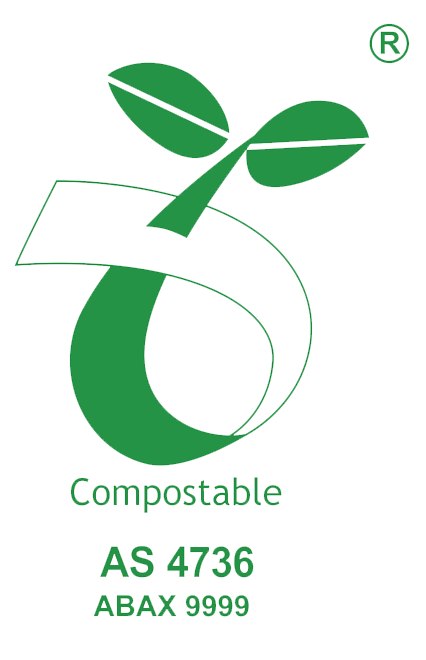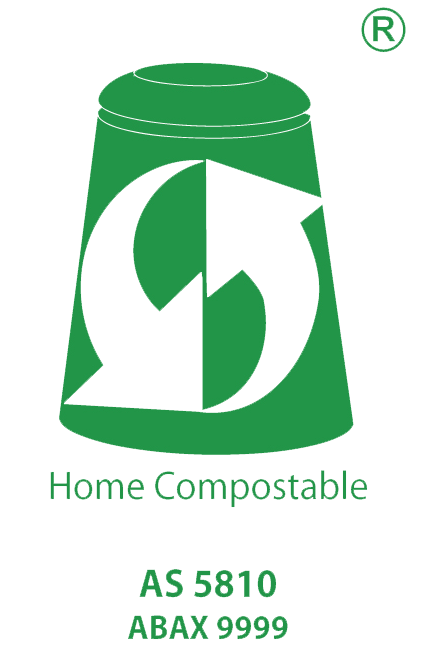WHICH BIN TIPS
Compostable, degradable and biodegradable plastic: what’s the difference?
Compostable
Compostable bags are made of natural plant starch, and do not produce any toxic material. They break down readily in a composting system through microbial activity to form compost.
In order to be classified as compostable they must meet the Australian Standard for compostability AS 4736 and will have this symbol:

Bags marked with the AS 5810 symbol are also compostable through your green bin, and can go in your home compost system.

Compostable bags can be used to line your kitchen caddy for collection of food scraps and other organic materials, and then placed into your green organics bin.
Degradable
Degradable bags are made from plastic with other chemicals added (including heavy metals). This causes the plastic to break down and disintegrate over time when exposed to sunlight and heat, breaking down into hundreds of tiny pieces of plastic.
This is problematic as animals can consume the smaller pieces of plastic more readily than they would if the bags were still whole.
It is also much more difficult to remove hundreds of tiny pieces of plastic from the environment than it is to remove a single bag.
Degradable bags should only be placed into your landfill bin.
Biodegradable
Like degradable bags, biodegradable are often still plastic bags that have microorganisms added to break down the plastic into lots of tiny pieces of plastic.
Biodegradable bags are not compostable – unless a bag is specifically marked as ‘100% compostable’, it will contaminate your green organics bin.
Black dog poo bags are a common form of biodegradable bag. They commonly state ‘oxo degradable‘ and may also claim to be ‘eco-friendly‘ but this isn’t true unless they are compostable.
Biodegradable bags should be placed into your landfill bin.
Banned in South Australia
Under the Single-use and Other Plastic Products (Waste Avoidance) Act 2020, the manufacture, sale, supply and distribution of oxo-degradable plastic products is prohibited in South Australia.
